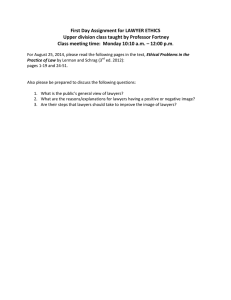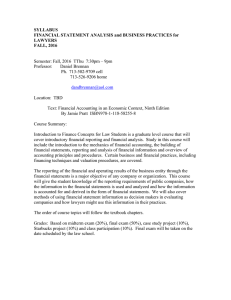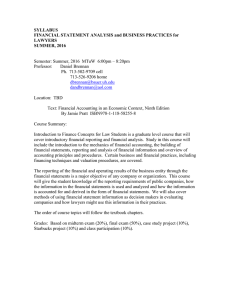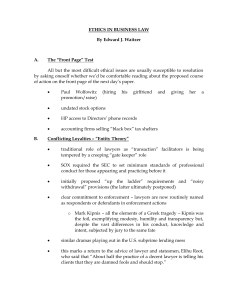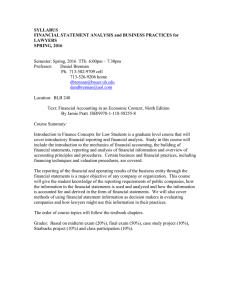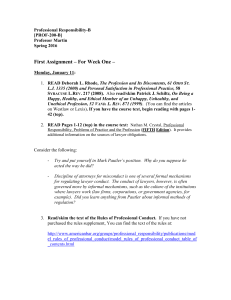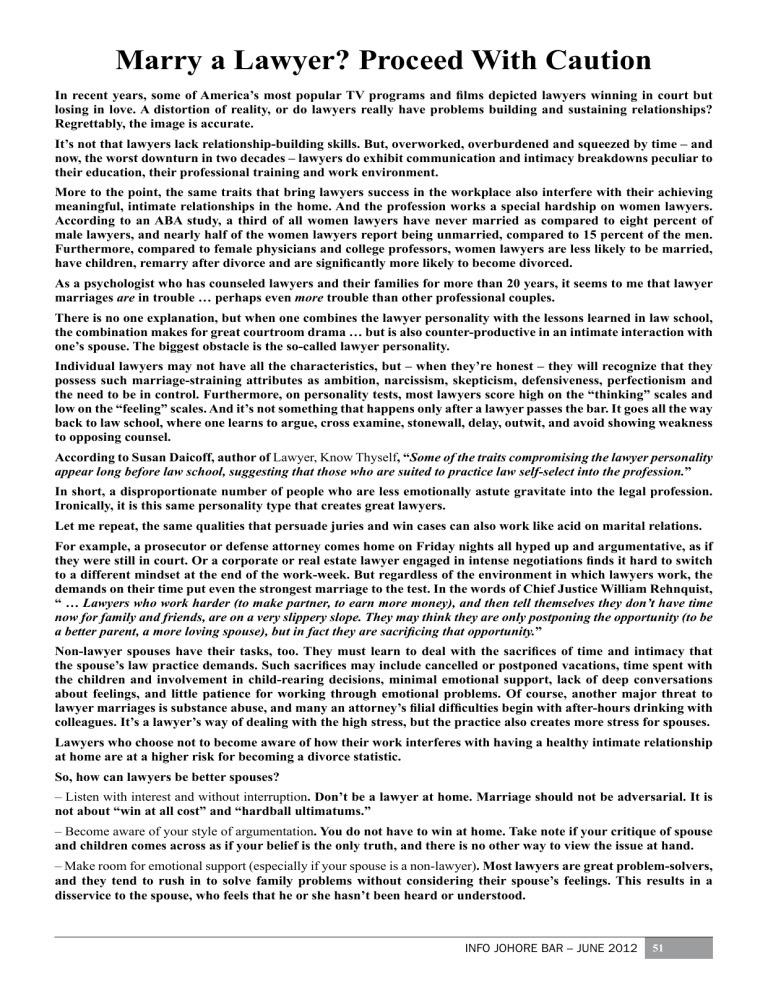
Marry a Lawyer? Proceed With Caution In recent years, some of America’s most popular TV programs and films depicted lawyers winning in court but losing in love. A distortion of reality, or do lawyers really have problems building and sustaining relationships? Regrettably, the image is accurate. It’s not that lawyers lack relationship-building skills. But, overworked, overburdened and squeezed by time – and now, the worst downturn in two decades – lawyers do exhibit communication and intimacy breakdowns peculiar to their education, their professional training and work environment. More to the point, the same traits that bring lawyers success in the workplace also interfere with their achieving meaningful, intimate relationships in the home. And the profession works a special hardship on women lawyers. According to an ABA study, a third of all women lawyers have never married as compared to eight percent of male lawyers, and nearly half of the women lawyers report being unmarried, compared to 15 percent of the men. Furthermore, compared to female physicians and college professors, women lawyers are less likely to be married, have children, remarry after divorce and are significantly more likely to become divorced. As a psychologist who has counseled lawyers and their families for more than 20 years, it seems to me that lawyer marriages are in trouble … perhaps even more trouble than other professional couples. There is no one explanation, but when one combines the lawyer personality with the lessons learned in law school, the combination makes for great courtroom drama … but is also counter-productive in an intimate interaction with one’s spouse. The biggest obstacle is the so-called lawyer personality. Individual lawyers may not have all the characteristics, but – when they’re honest – they will recognize that they possess such marriage-straining attributes as ambition, narcissism, skepticism, defensiveness, perfectionism and the need to be in control. Furthermore, on personality tests, most lawyers score high on the “thinking” scales and low on the “feeling” scales. And it’s not something that happens only after a lawyer passes the bar. It goes all the way back to law school, where one learns to argue, cross examine, stonewall, delay, outwit, and avoid showing weakness to opposing counsel. According to Susan Daicoff, author of Lawyer, Know Thyself, “Some of the traits compromising the lawyer personality appear long before law school, suggesting that those who are suited to practice law self-select into the profession.” In short, a disproportionate number of people who are less emotionally astute gravitate into the legal profession. Ironically, it is this same personality type that creates great lawyers. Let me repeat, the same qualities that persuade juries and win cases can also work like acid on marital relations. For example, a prosecutor or defense attorney comes home on Friday nights all hyped up and argumentative, as if they were still in court. Or a corporate or real estate lawyer engaged in intense negotiations finds it hard to switch to a different mindset at the end of the work-week. But regardless of the environment in which lawyers work, the demands on their time put even the strongest marriage to the test. In the words of Chief Justice William Rehnquist, “ … Lawyers who work harder (to make partner, to earn more money), and then tell themselves they don’t have time now for family and friends, are on a very slippery slope. They may think they are only postponing the opportunity (to be a better parent, a more loving spouse), but in fact they are sacrificing that opportunity.” Non-lawyer spouses have their tasks, too. They must learn to deal with the sacrifices of time and intimacy that the spouse’s law practice demands. Such sacrifices may include cancelled or postponed vacations, time spent with the children and involvement in child-rearing decisions, minimal emotional support, lack of deep conversations about feelings, and little patience for working through emotional problems. Of course, another major threat to lawyer marriages is substance abuse, and many an attorney’s filial difficulties begin with after-hours drinking with colleagues. It’s a lawyer’s way of dealing with the high stress, but the practice also creates more stress for spouses. Lawyers who choose not to become aware of how their work interferes with having a healthy intimate relationship at home are at a higher risk for becoming a divorce statistic. So, how can lawyers be better spouses? – Listen with interest and without interruption. Don’t be a lawyer at home. Marriage should not be adversarial. It is not about “win at all cost” and “hardball ultimatums.” – Become aware of your style of argumentation. You do not have to win at home. Take note if your critique of spouse and children comes across as if your belief is the only truth, and there is no other way to view the issue at hand. – Make room for emotional support (especially if your spouse is a non-lawyer). Most lawyers are great problem-solvers, and they tend to rush in to solve family problems without considering their spouse’s feelings. This results in a disservice to the spouse, who feels that he or she hasn’t been heard or understood. INFO JOHORE BAR – JUNE 2012 51 So, how do you leave certain behavior patterns in the office and adopt a more conciliatory behavior at home? To begin, it would be helpful to acknowledge that certain lawyerly goals and techniques are at cross-purposes with the behaviors that foster good marriages – for example, win (compromise), doubt (trust), cross-examine (discuss), argue (admit error), attack (accept fallibility in self and others), avoid vulnerability (concede), think for others (respect partner’s opinions and ideas), deny weakness (allow for vulnerability), hinder and delay (cooperate). Lawyers, take note: Be aware that the adversarial, argumentative style that works at the office and in court works against you if used with your spouse and children. Awareness is the first step to successful change. So, practice taking a deep breath at the midway point between home and office, and as you exhale, let go of that lawyer style until you inhale it back again tomorrow on your way back to work. You are good at practicing law, try practicing love! By Dr. Fiona Travis Source: www.lawyeravenue.com Book review - 21st Century Solicitor: How to Make a Real Impact as a Junior Commercial Lawyer This is an honest and up-to-the-minute look at how to succeed early on in the profession, written by a UK lawyer who offers a unique combination of experience as a practitioner, trainer, and law firm voyeur. 21st-Century Solicitor takes into account the vast changes that the profession has undergone during the past few years. No longer is success in the law dependent on technical aptitude alone. The book sets out the basic requirements of a solicitor and the soft skills such as communicating empathetically, acting commercially, writing carefully, presenting brilliantly, networking sensibly and building relationships enthusiastically. These skills might be called ‘soft’ by our industry, but the reality is that they are both incredibly hard and vitally the ‘most wanted’ skills and top tips that can be applied by anyone. This book also sets out the pitfalls to be avoided, which every solicitor needs to know. Author’s Biography This book is a tool kit for all junior lawyers, written with a light touch but containing real substance, and covering all the key attributes for success as well as the potential pitfalls of life in practice Steve Weiner originally qualified as a solicitor in the City of London before practising as a commercial litigator. Since leaving private practice, Steve has worked as a Learning and Development professional, a skills trainer and a business coach in a number of leading City of London law firms. Steve is also an award-winning stand-up comic, has performed in comedy clubs all around the UK and is a TV actor, radio presenter and an accomplished comedy writer. Written / Sourced & Contributed by, Ms. Kalpana Kumara Nadzarin Kuok Puthucheary & Tan Johor Bahru 52 INFO JOHORE BAR – JUNE 2012
